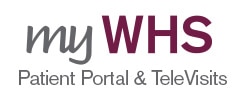Speech and language therapy focuses on a child’s ability to communicate both verbally and non-verbally; from simple gestures to the complex skills needed to initiate or maintain a conversation. Interventions for children with communication difficulties can include articulation therapy for the development of speech sounds, oral-motor and dyspraxia therapies for the development of speech motor skills, language therapy, which includes comprehension and expression of ideas through speech or augmentative forms of communication and social-pragmatic therapy (being able to communicate in various social environments and situations).
Therapy may focus on any of the following areas:
- expressive and receptive language disorders
- articulation or phonological deficits
- apraxia of speech
- cognitive skills, such as problem solving and reasoning
- social skills (Learn more)
- feeding, swallowing and oral motor skills (Learn more)
- augmentative communication (Learn more)
- stuttering or disfluencies
- voice disorders
- reading and literacy skills
- hearing loss/cochlear implants
During each speech evaluation, we use a combination of standardized assessments, clinical observations, evaluation of play and caregiver interviews to determine the next step in the child’s care. Speech and language services are provided by state-licensed Speech-Language Pathologists with current Certification of Clinical Competency from the American Speech-Language-Hearing Association.




